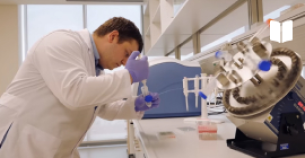“The only constant in life is change.” (Heraclitus)
With the above-mentioned belief, Acıbadem University (ACU) English Preparatory Program AIMS to create a developmental change in students in terms of English language and academic skills so that not only can they effectively cope with the challenges in their daily, academic and future professional contexts, but also become individuals with certain universal and societal values that enable them to become nationally and internationally-oriented individuals who can act accordingly in both the local and the global context. To this end, we consider the student as a whole by addressing their needs in metacognitive (e.g. reflecting on study habits), cognitive (e.g. critical reading) and socio-affective (e.g. enjoying pair and group work) aspects of learning so that they CAN
- communicate effectively in English,
- pursue their academic studies in their faculty,
- cope with the challenges of the 21st century,
- become life-long learners, and
- function as educated individuals holding universal and societal values.
More specifically, our program aims to equip students with knowledge, skills, habits and values so that they become
- effective communicators, particularly in academic English,
- effective critical thinkers,
- self-regulated, autonomous learners,
- creative and innovative thinkers,
- effective collaborative team members,
- scientifically-oriented individuals with a passion for reading and research,
- effective users of technology, and
- individuals who hold the following core VALUES:
- Academic integrity and fairness,
- Personal and universal ethics,
- Respect for differences (alternative viewpoints, different cultures, gender, social class, etc.), and
- Curiosity and desire to learn.
To create these developmental changes in our students, our English Preparatory Program aims to provide students with an English-medium environment where they are fully exposed to the English language, a learner-centered environment where students assume an active role in their own learning process, a humanistic, positive and supportive environment where students can feel free and self-confident to express themselves, an interactive and collaborative environment where both the teacher and students learn from each other, and an inquiry-based environment where students are encouraged to engage in higher-order thinking skills, triggering and satisfying their curiosity for learning. Just as every student has different backgrounds, learning styles and needs, so every teacher can have their own teaching styles to achieve the target goals. Accordingly, our English Prep Program offers teachers the flexibility to utilize and implement different teaching methods as long as they are based on and do not conflict with the following essential pedagogical principles:
- Each teaching situation and learning environment is unique, so an eclectic approach in English teaching should be implemented to address different needs and learning styles.
- An integrated-skills approach with specific focus on one certain skill in each course in the program should be employed for communicative purposes.
- Educational practices should be learner-centered pursued with the active participation and collaboration of students through various interactional activities (e.g. pair-work, group work, taskbased, problem-based and inquiry-based activities)
- Syntactic and lexical components of the English language should be contextualized.
- Students should be provided with the opportunity to reflect on their own learning and thinking processes to address their needs in terms of metacognitive skills in the language learning process;
- A social-constructivist approach should be adopted by establishing learning environments and activities that help students construct meaning from the learning experience and connect new knowledge and skills to ones acquired previously;
- Teachers should display a humanistic approach toward students to satisfy not only the cognitive but also the affective-social needs of students.
Based on the changing conditions and student needs in the current era, throughout the educational practices implemented in the English Prep Program, students are expected to take an ACTIVE ROLE in their learning process and monitor their own progress throughout their educational endeavors, whereas the teacher assumes the role of facilitating the learning process, the role of establishing learning environments conducive to achieving the goals of the Program, the role of modeling the target skills, habits and values, the role of monitoring the learning process and student progress, and the role of a life-long learner who also continues to learn not only from the students but also from their colleagues by means of the activities conducted by the Professional Development Unit (PDU). With the belief that teacher effectiveness, which is one of the most important constituents in a successful educational practice, can be secured by addressing teachers’ needs in terms of professional development, teacher well-being, and social support, PDU creates opportunities for teachers to attend various different events based on their needs and provides a platform where teachers can exchange ideas and experiences ranging from overcoming challenges to effective teaching skills and assessment procedures.
Assessment procedures in ACU English Prep Program are a means to reflect on both the teachers’ and students’ progress in their endeavors concerning the learning and teaching process during (formative) and at the end of each term (summative). Formative assessment methods and procedures, which are comprised of both traditional and alternative assessment tools, not only measure students’ and teachers’ progress, but also create a positive backwash effect by providing feedback for immediate remedial work for both parties. On the other hand, summative assessment is utilized to diagnose the effectiveness of the educational practices and the extent to which course goals and objectives are reached in order to make decisions about the changes required and identify the actions that need to be taken accordingly in our Prep Program because
“Progress is impossible without change, and those who cannot change their minds cannot change anything.” (G. Bernard Shaw)



